Growing up in a small, working-class community in the Midwest, I was conditioned to go for a "manly" man. This was well before my progressive liberal arts education. I was attracted to men with large appetites and dirt under their nails. Men who worked hard, watched sports, and drank beer. Not-always-gentle giants with bad tempers and rough hands, like my father's. Arran was far from that. For starters, he was bisexual.
Before I met him, I thought of bisexual guys as having painted nails and wearing skirts to philosophy class. (I know that gender presentation and sexual orientation are two different things, but stereotypes persist, and I'm embarrassed to say I believed in them.) On our first date, in New York City, Arran showed up from work wearing a suit. I liked his British accent and the effortless way we got along. Unlike the men I'd dated before him, the attraction wasn't only physical. That day, we walked my dog around Central Park and talked politics. His OkCupid profile had boasted an impressive job in political media. He had declared his sexuality on his profile, too. I'd missed it.
It didn't come up until our second date, after I'd disclosed my own sexual history. Being a writer, it's not easy for me to hide. Anyone with a web connection can read all about how I'd worked as a stripper through college and, for a brief stint, as a call girl during graduate school. I had begun blogging about my sexual experiences as early as 2005, but I was outed in an even bigger way in 2010, when my image appeared on the cover of the New York Post with the headline, "Bronx Teacher Admits: 'I'm an Ex-Hooker.'" I wasn't necessarily proud of my past, but I wasn't ashamed, either. I had started stripping because I'd been broke—but I had also been sexually curious. Now these experiences were a part of me. "Any guy I date," I gently explained, "would have to understand."
Many people whose sex lives are not easily labeled still feel compelled to live in the closet.
I'd grown used to awkward silences after this monologue. But Arran said he could relate and talked about his own coming out. That's when I began to realize my prejudices. The most common misconception about bisexual people is that they're indecisive or confused. The stereotype is: "You're either straight, gay, or lying." Although being gay is not as stigmatized as it used to be, Arran and I came of age before shows like Will & Grace—and way before celebrities like Azealia Banks were discussing their bisexuality on Twitter. Even now, there are few representations of bisexuals on television. As a result, many people whose sex lives are not easily labeled still feel compelled to live in the closet. Having kept my former occupation a secret, I knew what it was like: You deny parts of yourself and your past from the people around you out of fear of rejection. You deny parts of yourself even from yourself.
Arran had said he wasn't looking for anything serious when we'd met, but things moved fast. Less than a month later, we were an item. He sent me love poems. He brought me flowers every other week. On our sixth date, he played his guitar while singing an awkward cover of "Sea of Love." I had never known a guy so sensitive. He wasn't just willing to watch home-decorating reality shows; he did so enthusiastically. I loved it! It also freaked me out. Arran seemed too good to be true.
Although we got along in every other way, I began to second-guess our sexual compatibility. Despite the fact that it was Arran who first suggested we be monogamous, I feared that he hadn't dated enough people in his lifetime—specifically, enough men. Years before, Arran had been in a sexual relationship with his coworker, Steve, and Arran said he fit so comfortably into Steve's gay lifestyle that Arran assumed he himself was gay. Months later, he moved to New York City to attend graduate school and met a woman who became his wife. After the divorce, he'd only had a few relationships, all with women. Steve was the only guy that Arran had ever been with. And even then, Arran said, "There was a lot of stuff we never did."
Despite the fact that it was Arran who first suggested we be monogamous, I feared that he hadn't dated enough people in his lifetime—specifically, enough men.
When Arran told me he was bisexual, I could have just believed him and accepted that he was happy with me and our sex life. But I was insecure. The men I was used to dating were easy to please in bed. And though Arran was initially bashful around the subject of sex, I got the sense he was eager to experiment. I follow Dan Savage's GGG rule, where a healthy sexual relationship relies on both partners being "good, giving, and game," but I'm not as uninhibited as I let guys assume. Even at my wildest, I'm used to very particular and, in some ways, traditional sexual experiences. I kept wondering what Arran truly wanted.
Stay In The Know
Marie Claire email subscribers get intel on fashion and beauty trends, hot-off-the-press celebrity news, and more. Sign up here.
So, three months into our relationship, we decided to experiment. At a sex shop in the West Village, we learned the difference between a vibrator and a dildo, along with the benefits of silicone over rubber, and found the perfect strap-on for me to slip into Arran's virgin ass. Back at home, I took it out of the package, unbuckled the leather straps, and tried it on. The leather looked and felt sexy. I liked the way it smelled. To my relief, I felt turned on. Arran went down on me, and watching him suck the prosthetic was different, but not terrible. Then, we put it aside and had "regular" sex.
The idea of pegging was exciting. It was also scary. Even though lots of straight guys like to be pegged, trying the act brought my concerns about Arran's sexuality to the surface. When we eventually did it, I had trouble getting into it and had no clue what I was doing. It was frustrating and confusing. The whole time, I wondered if he secretly wished he were having sex with a guy.
"I really like what we did last night," Arran texted the next morning, followed by, "I'm feeling very close to you right now." Meanwhile, I'd never felt so inadequate. As a sex worker, I was used to performing. But I didn't want to perform anymore. I wanted intimacy, looking deeply into each other's eyes, and simultaneous orgasms. In discussions, Arran said he liked sex that way, too. But he also liked that we had begun to explore other things. I was curious, but afraid. I wanted a normal, uncomplicated life. But I also wanted to please my partner.
The more insecure I felt, the more I insisted we experiment. The first time he tied me up, I loved it. When he suggested I do the same to him, I felt unsure. One night, we discovered that wearing women's underwear aroused him. The sex we had after he tried them on was good, but in the back of my mind, I felt uneasy. Arran didn't fit neatly into the categories I was used to, even though I know those categories actually don't fit naturally for many people. As progressive as I thought I was, I felt an aversion I was too embarrassed to name. I equated things like submissiveness with femininity. In certain sexual situations, it was difficult not being the center of attention. I was used to being the object of desire. I was used to being "the girl." But being with Arran challenged what that means. I began to question whether he was being honest and living an authentic life. Deep down, I worried that I couldn't provide what it would take to satisfy him sexually.
The jealousy I sometimes feel toward his ex-boyfriend, for example, is no different than the jealousy I might feel toward a female ex.
Some days after the underwear incident, I casually suggested Arran try on my slip. When he seemed interested, I broke into tears. "Can we just give it a break?" I shouted. My outburst shocked him. He started crying, too. I immediately apologized, but it was too late: I had shamed him.
"If you never want to do anything like that ever again," he said, "that'd be OK." It was a relief to hear. But no, I thought, that wouldn't be OK. All my life, I had wanted a relationship where both my partner and I were free to express anything and be exactly who we are. Arran was prepared to give me that, if only I was brave enough to give it in return.
And so I tried. That day, I stopped attempting to assuage my insecurities by pretending they didn't exist. We talked more openly about my fears. It was a new experience for me to love someone so much that I wanted them to be happy, even if it meant going against what I wanted or desired for myself. It's challenging to be yourself while letting the person you love be who they are—rather than insisting they be who you want them to be. But by remaining honest and communicative, we've been able to strike a better balance between his desires in bed and mine. We have a clearer idea of what we both want—which is so much more than sex.
It's now been almost two years since our first date; Arran and I live together, we talk about getting married and having kids. At times, I still wonder if Arran would be more satisfied sexually by a man, or if it would be easier to love a "manly" man, but I've realized these insecurities have less to do with his sexuality than I first thought. The jealousy I sometimes feel toward his ex-boyfriend, for example, is no different than the jealousy I might feel toward a female ex. And even if I worry that it's impossible to please him, isn't it always the case that sexual compatibility requires some experimentation, flexibility, and compromise?
The other day, my boss casually asked me what soccer team Arran roots for. When I told him Arran doesn't follow sports, he made an outdated stereotypical joke: "What is he, gay?"
No, I thought, he's bisexual. And what does that mean? Not what I thought.
This article appears in the April issue of Marie Claire, on newsstands now.
-
 Matty Healy Was "Worried" He’d Be Portrayed As a “Villain” on Taylor Swift’s ‘The Tortured Poets Department,’ Sources Say
Matty Healy Was "Worried" He’d Be Portrayed As a “Villain” on Taylor Swift’s ‘The Tortured Poets Department,’ Sources Say"... we were all nervous about what she might have said on the album."
By Danielle Campoamor Published
-
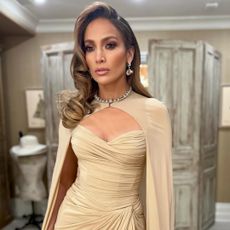 Jennifer Lopez's Cape Gown Is Made for a Goddess
Jennifer Lopez's Cape Gown Is Made for a GoddessShe's taking a glamorous break from sweatpants and Birkins.
By Julia Gray Published
-
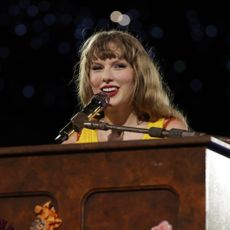 Taylor Swift Shocks The World with a ‘The Tortured Poets Department’ Double Album, Giving Fans 15 Extra Songs at 2 A.M.
Taylor Swift Shocks The World with a ‘The Tortured Poets Department’ Double Album, Giving Fans 15 Extra Songs at 2 A.M.Who needs sleep, amirite?!
By Danielle Campoamor Published
-
 30 Female-Friendly Porn Websites for Any Mood
30 Female-Friendly Porn Websites for Any MoodAll the best websites, right this way.
By Kayleigh Roberts Published
-
 The 82 Best Cheap Date Ideas for Couples on a Budget
The 82 Best Cheap Date Ideas for Couples on a Budget"Love don't cost a thing." —J.Lo
By The Editors Last updated
-
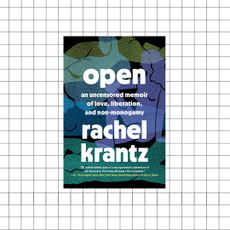 Diary of a Non-Monogamist
Diary of a Non-MonogamistRachel Krantz, author of the new book 'Open,' shares the ups and downs of her journey into the world of open relationships.
By Abigail Pesta Published
-
 COVID Forced My Polyamorous Marriage to Become Monogamous
COVID Forced My Polyamorous Marriage to Become MonogamousFor Melanie LaForce, pandemic-induced social distancing guidelines meant she could no longer see men outside of her marriage. But monogamy didn't just change her relationship with her husband—it changed her relationship with herself.
By Melanie LaForce Published
-
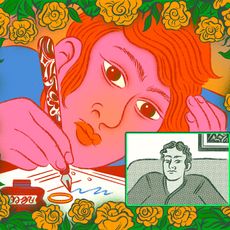 COVID Uncoupling
COVID UncouplingHow the pandemic has mutated our most personal disunions.
By Gretchen Voss Published
-
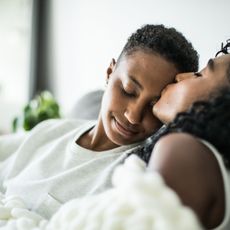 16 At-Home Date Ideas When You're Stuck Indoors
16 At-Home Date Ideas When You're Stuck IndoorsStaying in doesn't have to be boring.
By Katherine J. Igoe Published
-
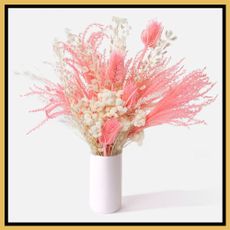 Long Distance Relationship Gift Ideas for Couples Who've Made It This Far
Long Distance Relationship Gift Ideas for Couples Who've Made It This FarAlexa, play "A Thousand Miles."
By Jaimie Potters Published
-
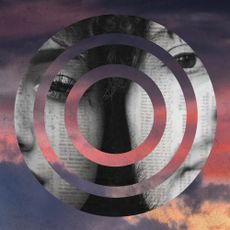 15 Couples on How 2020 Rocked Their Relationship
15 Couples on How 2020 Rocked Their RelationshipCouples confessed to Marie Claire how this year's many multi-stressors tested the limits of their love.
By Sherry Amatenstein, LCSW Published